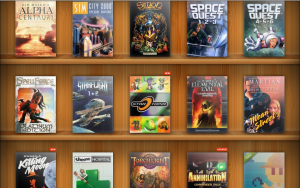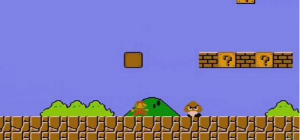In part one; I talked about the situation surrounding preserving video games in today’s market and the problems with the available options. For this part, I want to focus more on the debates from the EFF and ESA and what they mean for the future of piracy and preserving games.
The EFF’s Side:
If you haven’t already read it, please read part one of my post where I talked about the difficulties of preserving games as it relates to the EFF’s position on this matter. Considering the various problems with preserving games and game emulation today, the EFF is clearly on the side of people doing anything they can to keep classic games available.
The issue is that the number of legal ways to do this is shrinking fast and even then they are not future proof. Buying a refurbished Snes or Sega Genesis will get you a few more years of use but just like any piece of technology they’re not meant to be working 20-30 years down the line. Even then, you still need to worry about the other pieces of hardware and finding a TV or monitor with the hookups.
That in a nutshell is why they are proposing that people who are hacking games to keep them running when a game is no longer being supported should be exempt from the DMCA.
The ESA on the other hand is looking at this from a publisher/developer point of view and their point has to do with piracy.
The ESA’s Side:
The ESA’s point hinges on the fact that in order to keep these games going, people would have to turn to piracy. They feel that by being supportive of this action, it will be like condoning people to pirate games. It’s essentially the slippery slope idea that if someone sees people pirating games to keep them running, then they’ll take the next step and make it easy to pirate modern games or those that are still being sold today.

While GOG is a great site and service, we can’t just have only one way to preserve classic games and even still, GOG is limited in what they can redistribute
Game piracy is still a major issue facing game developers and as both technology improves and the technical skills of hackers, so does the threat of game piracy.
There have of course been recent attacks on Blizzard, Sony and so on, but those were DDOS and not aimed at stealing games.
Normally I can look at things from both sides pretty well, but this is an issue that I am firmly on the side of game preservation and the EFF.
What I think:
Game piracy is a serious deal, but it’s not related to game preservation and the work that these people are doing. Someone who wants to pirate a game is going to pirate every chance they get; I’ve met people like that in the past. What the EFF is talking about are people who want to make it possible to preserve games that are no longer being supported by their developers/publishers and keep them playable for years to come.
People who are working to preserve these games are not thinking about pirating modern games or creating the tools for others to do so. As I mentioned further up, the legitimate ways to play older games are disappearing with every new generation of games and we can’t just leave it in the hands of the developers to make sure that they continue to preserve their titles.
The goals of preservationists vs. pirates are different; preservationists love these games and want to keep them around for a long time. Pirates simply want the latest games either without spending money or sticking it to a developer they don’t like. If there are people that dedicated to spend their time and money to keep these games alive, then I feel that we should encourage them to do so.
What the Future Holds:
There is a lot more to discuss about this issue and I had several other topics for this post that I wanted to talk about, except that I did on this week’s podcast. The EFF is also planning to release their statement to the ESA this week and hopefully this topic will continued to be talked about.
A lot of gamers either don’t know or don’t care about the work of preserving games, but this is a major issue. People keep talking about video games being art, but how can we continue to admire games and call them artistic when the majority of people don’t care about preserving them?

Right now Nintendo is the only major console developer with backwards compatability offered and that’s not good enough for preserving our history
As someone who grew up in the 80s-90s, there are a lot of games that I would love to go back to if given the option as it’s important to preserve our history for future generations.
The problem is that many people don’t view video games as nothing more than technology that gets thrown out when the next breakthrough is released.
I know that there are concerns and issues with IP holdings that are preventing a lot of games from being redistributed and digitized today. However, again I have to stay on the support of the preservationist side and I do think there should come a point when a game is not considered sell-able that it can enter the public domain for people to work on it.
In the end, the debate of preservation vs. piracy is either going to screw developers/publishers who want to control the rights and keep their games from being preserved, or the fans who want to be able to experience these games for years to come, and I have to say that I’m perfectly fine with the developers losing on this one. We can’t just have one or two options available to play classic games as that’s putting all your eggs in one basket and can put us back in this position in a few years.
As evident by Game-Wisdom and the pieces I’ve written, I treat video games more on the artistic and educational side of things and why I’m so passionate about this issue. In my previous post I asked the following question: Do you think in 50 years we will still be able to play PS4 and Xbox One titles? Unless more people become aware of this issue and voice their concerns, I think the answer to that question will be no.
Definitely come back on Friday for the podcast and tell your friends and anyone else interested in the video game industry as an art form about it. Because if we don’t start to take greater steps in preserving our history, there won’t be anything left to preserve.


